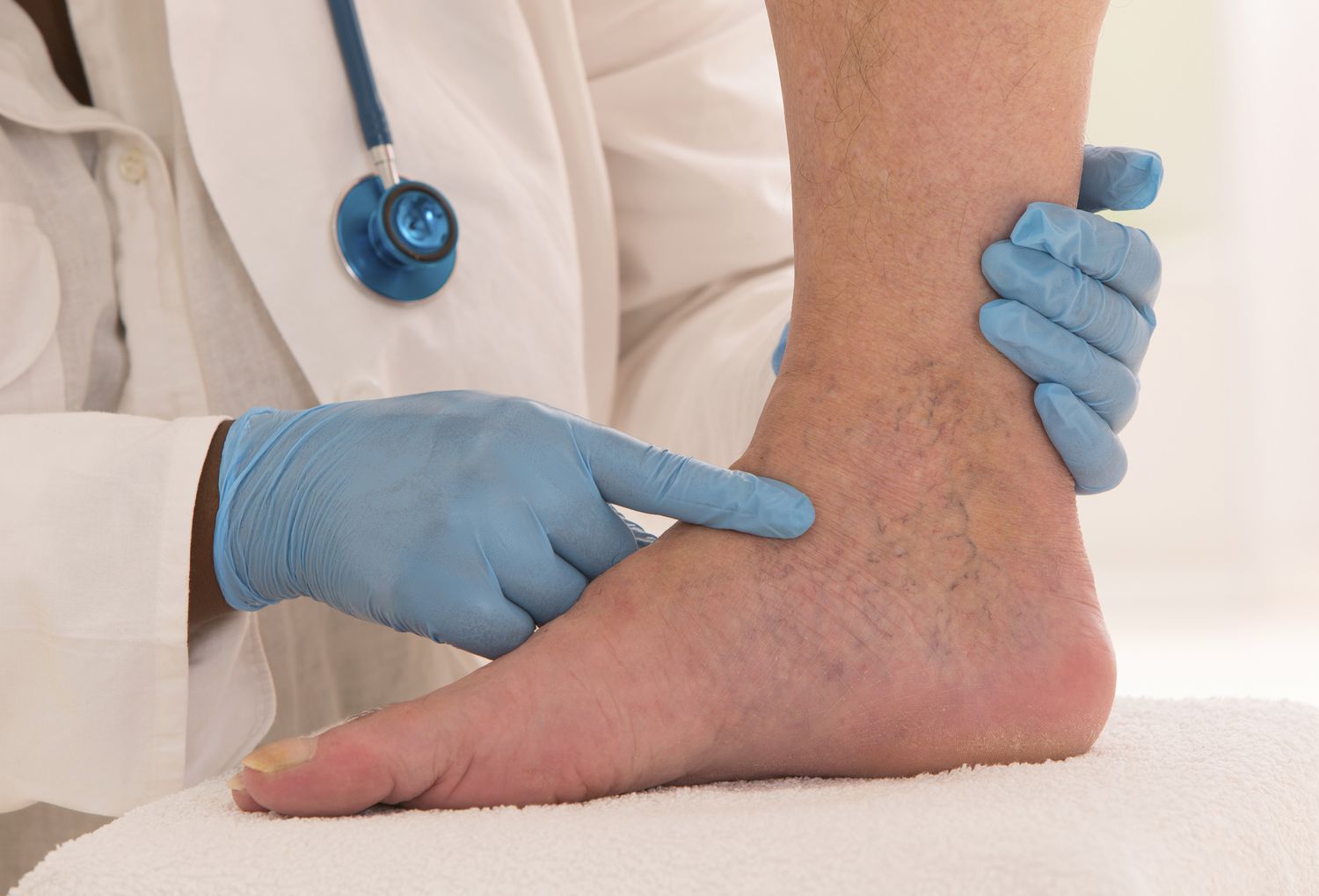How to get Semaglutide (Ozempic) for weight loss
Many people struggle to lose weight and may wonder how to get Ozempic® for weight loss. The answer is not simple, especially if you do not have diabetes.
Ozempic (semaglutide) is FDA-approved for treating type 2 diabetes, not weight loss. However, some healthcare proviers prescribe it “off-label” to help with weight loss. The downside is that off-label drugs are usually not covered by insurance.
Wegovy® is another medication that contains semaglutide and is FDA-approved for weight loss. You may be able to get a Wegovy prescription from your doctor or through a telehealth service. However, many insurance plans do not cover weight loss injections because they are considered “cosmetic.”
Some online health services, like Hers, offer access to compounded semaglutide, which contains the same active ingredient as Ozempic and Wegovy.
This guide explains how to get a prescription for Ozempic or semaglutide for weight loss, where to find it, and how much it costs.
What is Ozempic and how does It work?
Before discussing how to get Ozempic, it’s important to understand how it works.
Ozempic is a brand-name drug that contains semaglutide. It falls in a group of medications called GLP-1 receptor agonists. These drugs mimic a natural hormone in your body called GLP-1, which helps control blood sugar and promotes feelings of fullness after eating.
Ozempic and other GLP-1 drugs work by:
- Helps slow down digestion, keeping you satisfied longer
- Reducing cravings for food
- Increasing insulin production, which helps control blood sugar levels
Do You need a prescription for Ozempic?
Yes, Ozempic is a prescription medication. You cannot buy it over the counter or order it online without a doctor’s approval. You can get a prescription from your doctor or a licensed healthcare provider through a telehealth service.
Can you get Ozempic without diabetes?
Ozempic is sometimes prescribed off-label for weight loss, meaning a doctor can prescribe it for a reason other than diabetes. However, insurance rarely covers off-label prescriptions, making it expensive for many people.
If you do not have diabetes but have obesity or a weight-related health issue, a doctor may prescribe another GLP-1 medication that is FDA-approved for weight loss. These include:
- Wegovy (semaglutide)
- Zepbound® (tirzepatide)
How to get a prescription for Ozempic for weight loss?
If you qualify, a licensed healthcare provider can prescribe Ozempic for weight loss. You can get a prescription in person or online.
Getting Ozempic online
With the rise of telehealth services, getting a prescription for Ozempic online is easier than ever. You just need to choose a telehealth provider.
Through the Hers platform, licensed healthcare providers assess your health and, if you qualify, prescribe GLP-1 medications for weight loss. The process usually includes:
- A free initial health questionnaire.
- Connecting with a provider who reviews your medical history.
- If approved, receiving a prescription for the best weight loss medication for your needs.
Different telehealth services may have slightly different steps, but most will ask about your health and weight to determine if you qualify. Some platforms, like Hers, also offer support services, including:
- Access to a healthcare team for follow-ups
- Guidance on healthy eating and lifestyle changes
Getting Ozempic in person
If you prefer, you can get an Ozempic prescription by visiting a doctor in person. You do not need to see a specialist—any licensed healthcare provider can prescribe it, including:
Primary care doctors
- Physician assistants
- Nurse practitioners
- Seeing a doctor in person allows them to:
- Perform a full physical check-up.
- Discuss any existing health conditions.
- Order lab tests if needed.
If you want to try Ozempic for weight loss, schedule an appointment with your doctor and let them know you are interested in weight loss medications.
Who can use ozempic for weight loss?
Ozempic (semaglutide) is a medication, providers primarily prescribed for type 2 diabetes. To have it covered by insurance, you typically need a diabetes diagnosis. Though, some doctors prescribe Ozempic off-label for weight loss.
If you are considering Ozempic for weight loss, your doctor may calculate your body mass index (BMI) based on your height and weight. BMI is a general measure of body composition, though it does not account for factors like age, ethnicity, or muscle mass. It is commonly used to determine if someone has overweight or obesity.
Another medication, Wegovy®, also contains semaglutide but is FDA-approved for weight management. According to FDA guidelines, to qualify for Wegovy, you must have a BMI of 30 or higher, or a BMI of at least 27 with a weight-related health issue such as high blood pressure, high cholesterol, heart disease, or sleep apnea. Some doctors may use the same criteria when prescribing Ozempic for weight loss.
Ozempic availability and shortages
Ozempic’s availability depends on supply levels, and there have been shortages due to high demand and the discontinuation of certain pen sizes. The manufacturer, Novo Nordisk, has reported improvements in supply, but shortages may still occur. As a result, some healthcare providers prioritize prescribing Ozempic for those with diabetes.
Does insurance cover ozempic for weight loss?
In most cases, health insurance does not cover Ozempic for weight loss. Insurance companies rarely include weight management medications in their coverage. While this may change in the future, most people currently need to pay out of pocket if they want to use Ozempic for weight loss.
How much does Ozempic cost?
Ozempic is a costly medication. The price for one Ozempic pen, which contains two to four doses, typically exceeds $950. Wegovy, another semaglutide medication, is often even more expensive.
Considering the long-term cost is also essential. Ozempic and similar medications do not provide a permanent solution for weight loss. Many individuals need to continue taking them to maintain their results. A 2022 study sponsored by Novo Nordisk found that participants who stopped taking semaglutide regained about two-thirds of the weight they had lost within a year.
How much does compounded semaglutide cost?
Compounded semaglutide is an alternative option that may be more affordable. It contains the same active ingredient as Ozempic and Wegovy but is mixed by a compounding pharmacy. While compounded medications are not FDA-approved, some companies, like Hims & Hers, emphasize safety and quality.
At Hers, compounded semaglutide starts at $165 per month (with a 12-month plan paid in full). This price includes ongoing access to a healthcare team for support and questions.
How to get Ozempic without insurance
The process for obtaining Ozempic is the same whether or not you have insurance. You need a prescription from a healthcare provider, which you can get through an in-person visit or a telehealth platform. If insurance does not cover the cost, you will need to pay for it at the pharmacy.
If you are paying out of pocket, consider looking for drug coupons and other cost-saving options to reduce expenses.
How to talk to your provider about Ozempic
If you are interested in Ozempic for weight loss, discussing it with your doctor is completely reasonable. It is common for medications to be prescribed for off-label uses, so there is no need to feel hesitant.
Be open with your doctor about why you are considering Ozempic. A good healthcare provider will listen, assess whether the medication is appropriate for you, and review your medical history. If Ozempic is not a suitable option, they may recommend an alternative weight loss plan.
Potential side effects of ozempic
While Ozempic can be effective for weight loss, it does have some potential side effects. Common side effects include:
- Stomach pain
- Constipation
- Diarrhea
- Nausea
- Vomiting
- Heartburn
- Low blood sugar (though it typically does not cause dangerously low blood sugar)
Studies indicate that gastrointestinal side effects from Ozempic are generally mild to moderate. However, if you are unsure whether Ozempic is right for you, you may want to consider alternative weight loss medications or lifestyle changes.
Who should avoid Ozempic?
According to Ozempic’s safety information, this medication may not be safe for individuals with certain conditions, including:
- Acute gallbladder disease
- Pancreatitis
- Diabetic retinopathy
- Kidney problems
- A family history of thyroid cancer
Additionally, if you are pregnant, trying to conceive, or breastfeeding, you should inform your doctor, as Ozempic may not be safe during these times.
By understanding how Ozempic works, its costs, and its potential risks, you can make an informed decision about whether it is the right weight loss option for you.
Alternatives to ozempic for weight loss
There are several medications similar to Ozempic that can aid in weight loss. Some are officially approved for weight management, while others are used off-label to help control weight.
1. Compounded Semaglutide
Compounded semaglutide have the same active ingredient as Ozempic and Wegovy. Although it is not FDA-approved, it is often used for individuals who need a different dosage or have allergies to certain ingredients in the standard versions.
Compounding pharmacies are legally permitted to produce semaglutide due to ongoing shortages of Ozempic and Wegovy.
Through the Hers weight management program, licensed healthcare providers can prescribe compounded semaglutide to eligible individuals. The medication is delivered quickly, ensuring continuous access despite shortages.
2. Wegovy
Wegovy is similar to Ozempic but is FDA-approved specifically for weight loss. It contains semaglutide but is available in higher doses compared to Ozempic.
3. Saxenda
Saxenda is another injectable weight loss medication that works similarly to Ozempic and Wegovy by helping to control appetite and reduce cravings.
However, Saxenda’s active ingredient is liraglutide, which functions similarly to semaglutide but is not identical.
4. Zepbound and Mounjaro
Zepbound and Mounjaro are injectable medications used for weight loss. Both contain tirzepatide, with Mounjaro being approved for diabetes and Zepbound for weight management.
Tirzepatide works similarly to semaglutide but also activates another hormone called GIP, which may enhance weight loss results.
5. Metformin
Metformin is primarily used to treat diabetes but is sometimes prescribed off-label for weight loss.
Its exact mechanism for weight loss is not fully understood, but it appears to increase GLP-1 levels in the body, promoting a feeling of fullness and reducing food intake.
Unlike Ozempic, metformin is available in pill or liquid form rather than as an injection.
6. Naltrexone-Bupropion
Naltrexone-bupropion (brand name Contrave) is a combination medication used to aid weight loss.
Naltrexone is typically used to treat alcohol and drug addiction, as it reduces the pleasure associated with eating. However, Bupropion is used to treat depression and smoking cessation. Together, they help suppress appetite and reduce food cravings.
7. Topiramate
Topiramate is commonly prescribed for epilepsy and migraines but can also aid in weight loss. It is approved for people with a BMI over 30 when used in combination with phentermine.
Topiramate works by decreasing appetite, which can lead to lower calorie intake.
Lifestyle changes for weight loss (with or without Ozempic)
Incorporating small lifestyle changes can support weight loss efforts, whether or not you take medication. In fact, combining medication with healthy habits often leads to better results.
Here we are suggestion you some effective ways to support your weight loss journey, so keep reading:
1. Eat a balanced diet
Adjusting your diet is one of the most effective strategies for weight loss. Simple changes, such as increasing lean protein intake and choosing healthier snacks, can make a significant impact over time.
2. Exercise regularly
You do not need to engage in intense workouts, but incorporating physical activity into your routine can help with weight loss.
If you want to lose one pound of fat, you need to burn approximately 3,500 calories. Any form of movement that increases calorie expenditure can contribute to your goals.
3. Limit alcohol consumption
Alcohol can hinder weight loss efforts. It does not promote satiety, meaning you may consume additional calories while drinking. Furthermore, alcohol itself is calorie-dense.
A 2018 study found that individuals who drink heavily may experience difficulties with long-term weight loss.
Can you get Ozempic for weight loss?
Yes, Ozempic can be prescribed for weight loss, even though it is not officially FDA-approved for this purpose.
Key points to consider
There are no strict requirements for obtaining Ozempic for weight loss, but many healthcare providers follow the BMI guidelines for Wegovy. This means you may qualify if your BMI is 30 or higher or if your BMI is 27 or higher with a weight-related medical condition.
Due to high demand, there are shortages of Ozempic and Wegovy, so obtaining a prescription does not guarantee immediate availability.
Alternative medications, such as compounded semaglutide, metformin, and oral weight loss drugs, may be more affordable and accessible.
Weight loss medications can be helpful but are most effective when combined with healthy lifestyle habits.
Losing weight is a personal journey, and the decision to use a medication like semaglutide is entirely up to you.
Conclusion
Losing weight can be challenging, and medications like Ozempic and Wegovy offer additional support for those struggling to achieve their goals. While these treatments can be effective, they are not a one-size-fits-all solution. Availability, cost, insurance coverage, and potential side effects should all be carefully considered.
Whether you pursue prescription weight loss medications or focus on lifestyle changes, sustainable weight management comes from a combination of healthy habits, informed choices, and professional guidance. Consulting with a healthcare provider can help you determine the best approach for your individual requirements.








